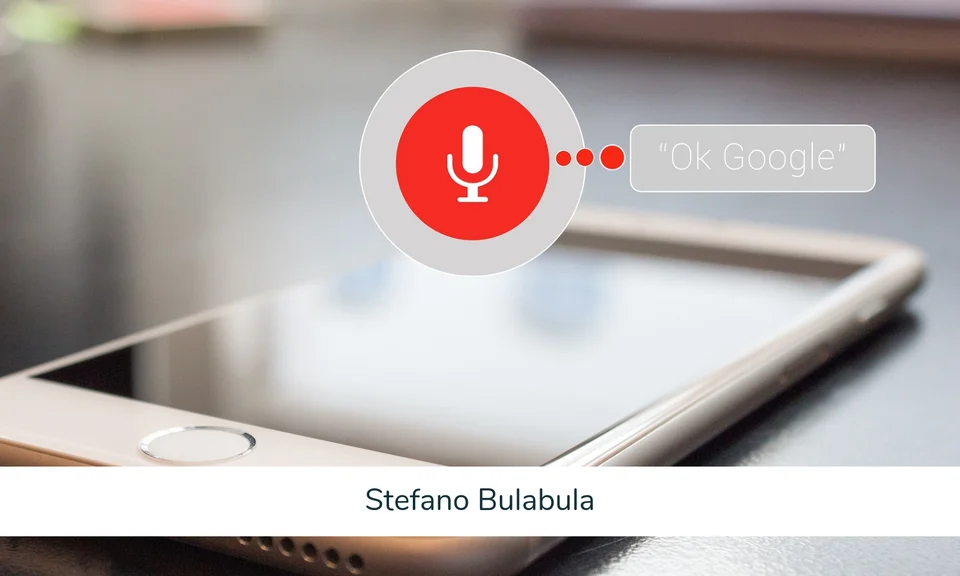- 08/01/2019

Some of the financial services on Fintastico have been referred to us by our compensating partners.
Fintastico's rating is derived from the weighted average of ratings from Trustpilot, App Store, Google Play store
It’s not a big surprise today that GAFAs (Google, Amazon, Facebook, and Apple) are deeply affecting our lives through their services and products. From search navigation to eCommerce, to social network and to hi-tech devices, there is almost nobody among all the population who doesn’t rely on their products.
The last trend that has risen recently is the development of smart speakers. With smart speakers, we intend those wireless speakers with virtual assistant built into them. Through voice or hands-free commands is possible to interact with these speakers and allow them to execute some tasks from the simplest to the hardest.
In the case you don’t know them, here there are the main actors in this market: Amazon Echo (with Alexa as Virtual assistant), Google Home (Google Assistant as Virtual assistant) and Apple Home Pod (Siri as Virtual assistant).
According to Forbes, Smart speaker users are growing 48% annually, hitting 90 million users alone in the US. Consumers have become more accustomed to using voice commands.

The smart speakers’ offer is pretty savage. Smart speakers are becoming a part of our everyday life (alternativa libera da copyright)
What has led to this growth? Basically, their speech recognition accuracy, their widening of the language support for non-english country, their easy installation within our homes, the declining of building cost that leads to a lower price for the final consumer.
Last but not least, what people are really like regarding these speakers is the new user experience. If you’re looking for the best recipe for your cake, set a reminder, asking how the weather is like, making calls, doing an online search, checking the news, your smart speaker will accurately answer to you within seconds.
So, the list of questions we can ask and the type of services they will provide us are both constantly growing. Moreover, with the development of new skill in the field of artificial intelligence and machine learning, more sophisticated voice-led services will be available.
Maybe the next question could be: Alexa, what is my bank account balance?
Indeed, banking through voice assistant is not a chimera but it is already a reality. Since 2014, the biggest financial institutions have launched voice activated banking a with a mix of pilot and full-scale launches.
The range of application of voice-activated banking is pretty wide: check account activity, schedule payments, transfer money, make person to person payment, pay bills, manage credit cards and the list goes on and on. What will guide customer satisfaction for voice banking will be the ease and speed of these services, the level of support provided in the case the voice assistants fail and the reliability of delivering basic account data.
At today, we can mention different examples of voice-assisted banking. Yet in 2014, ING Netherland launches “Inge”: through Inge, clients could pay someone in their contact list or ask where the closest branch was.
Similar features could be used even for institutional investors. Related to that, JPMorgan Chase and Amazon have recently finalized a partnership: the aim is to develop a new Alexa skill able to permit to investment bank’s institutional client to access analyst reports and stock information through voice assistant.

A smart speaker would fit well among the desk of this investor
Although these features seem very interesting, they could raise a lot of concerns regarding security and privacy.
Indeed, banks by offering these services, allow the sharing of sensitive data between the person and his smart speaker. For instance, in the case of the institutional clients, the possibility of allowing Alexa to execute trades on clients’ behalf, could generate a lot of potential risks, such as affecting financial markets. In this case, the bank will have to reinforce the security and the authentication of Alexa’s skill in order to prevent the assistant from submitting trades not really requested or requested by mistake.
There have been cases of Alexa devices which put orders by mistake by failing to authenticate the requested. Last year in the US, various Amazon Echo devices owners made complaints to a TV show after their smart speakers ordered dolls houses which were mentioned on the TV show. If the same situation were replicated in the field of stocks market, the output would be even more catastrophic!

Always be careful about what you’re saying to your smart speaker!
In the case of consumers clients, a smart solution implemented by Google Assistant and Alexa in order to increase the security of these interactions is to request a secure connection between the bank and the assistant. This connection is enabled by a four-digit PIN requested to the client every time any of his requests involved some sensitive data; instead, Apple’s Siri looks more restrictive by showing a user only his bank account balance, without allowing any other features (such as paying bills).
As described in this article, voice-assisted banking has a lot of application in the different field of banking and financial sector. These applications are catching on basically all around the world except in the European Union. Why these features are not available in the EU market?
Last year in Germany, Bonify, a Berlin-based fintech startup that gives customers free and easy access to their credit score, was the first financial institution in Germany who allows its clients to check account balances via Alexa. After only six weeks, the service was disabled by Amazon, leaving his founder Josef Korte open-mouthed. In the meanwhile, other German financial institution received the same treatment.
In the following weeks, Amazon responded to this topic through a letter, saying that Alexa Skill cannot allow balance queries or initiate payment within the European Union. It’s not clear if the PSD2, the new EU payment services directive has an influence on this decision made by Amazon: essentially, this directive allows companies such as Bonify to exploit third-party services (such as Alexa skills) in order to provide sensitive data to their customers. But in this case, the choice of blocking doesn’t come from the regulator but from the third-party service itself.

What is Amazon's plan for voice assisted banking in the EU?
At these conditions, it’s evident that an Alexa skill without the possibility of checking account balances appears useless to both financial institutions and consumers in the European Union.
Nevertheless, the European Region will be an interesting market opportunity for voice assisted banking, including Amazon’s Alexa. We will see in the next future if these obstacles will still block the growth of this phenomenon.



![What [the heck] is InsurTech? image](https://media.fintastico.com/images/network-782707_1280.2e16d0ba.fill-72x72.png)